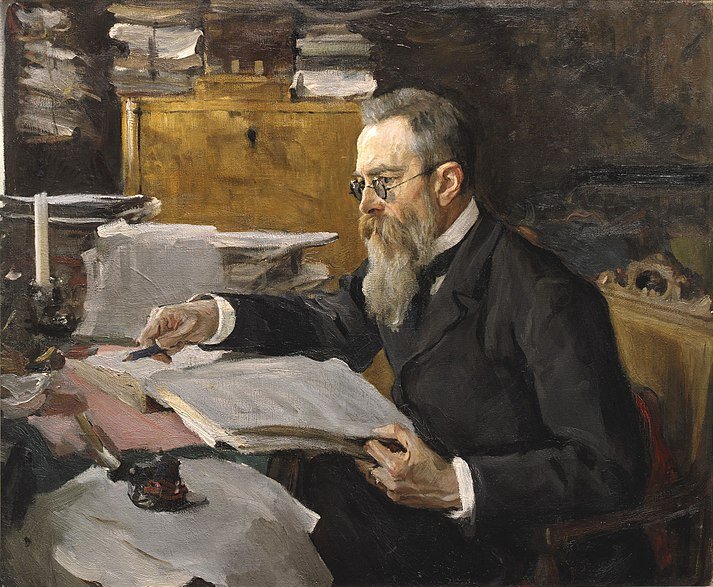April 20, 2024 | Zaryadye Concert Hall
Soloist – Alexander Ghindin, piano
Conductor – Arsenty Tkachenko
Rimsky-Korsakov. "The Legend of Invisible City of Kitezh" - Suite
Rimsky-Korsakov. Concerto for piano and orchestra in C-sharp minor, Op. 30
Stravinsky. "L'Oiseau de feu" ("The Firebird")
March 18, 2024, is the 180th anniversary of the great Russian composer Nikolai Andreevich Rimsky-Korsakov, author of such immortal masterpieces as Scheherazade, Capriccio Espagnol, operas The Snow Maiden, Sadko, The Tsar's Bride and many others. The composer wrote chamber music (many inspired art songs) but his priorities were operas and orchestral works.
The NPR's conductor Arsenty Tkachenko has compiled the coming program of popular works (including symphonic fragments from the opera The Legend of the Invisible City of Kitezh united in a suite) and some rarities such as the Piano Concerto.
Rimsky-Korsakov paid attention to a concerto form as suggested by Mily Balakirev, the leader of the Mighty Five Group, and took as examples piano concertos by Ferenc Liszt to whom the opus got dedicated. The Concerto has four sections (following the sonata-symphony principle) played without intermission and are interconnected by a themes. Rimsky-Korsakov wrote that the Concerto was surely like a snippet of Lisztean music but sounded quite beautiful and was fully satisfactory in its piano facture that surprised Balakirev who had not expected something like it from a non-pianist.
The piano part in the Concerto will be played by the Merited Artist of Russia Alexander Ghindin, a sophisticated pianist who is well-known as a profound explorer and connoisseur of the Russian piano literature, performing many rarities of the Russian piano repertoire.
Part 2 will feature the full score by Igor Stravinsky, a pupil of Rimsky-Korsakov, to The Firebird ballet, written for Diagilev's Parisian company. The aesthetics of The Firebird is in many ways close to the musical language of Lyadov and Rimsky-Korsakov, however Stravinsky tied Russian traditions with the newest ideas of French music, anticipating in some episodes his own revolutionary breakthrough in rhythms and metrics. The ballet was premiered on June 25, 1910, at the Grand Opera within The Russian Seasons project and brought to Stravinsky his first triumph. The libretto and choreography were by Mikhael Fokine, while Alexander Golovine and Leon Bakst created the decorations and dresses. Tamara Karsavina with Mikhael Fokine himself as Ivan Tsarevich danced The Firebird. The conductor was Gabriel Pierné. The success was nothing but sensational. Along to a Parisian critic the show was the most amazing wonder of balance between movement, sound and form. Many years later Boris Asafiev wrote: “Stravinsky had managed to catch the Firebird's light-gold-feather making the ballet score sparkle with the rainbow shining of precious stones-tone colors.”




